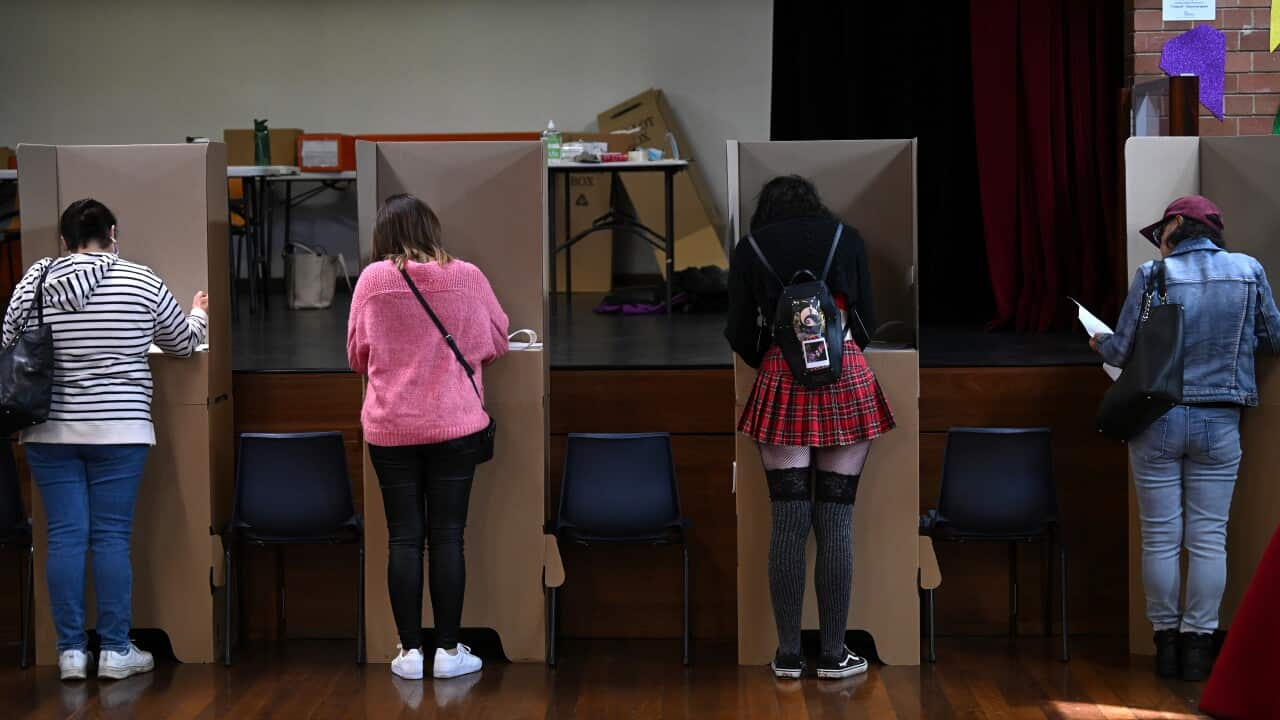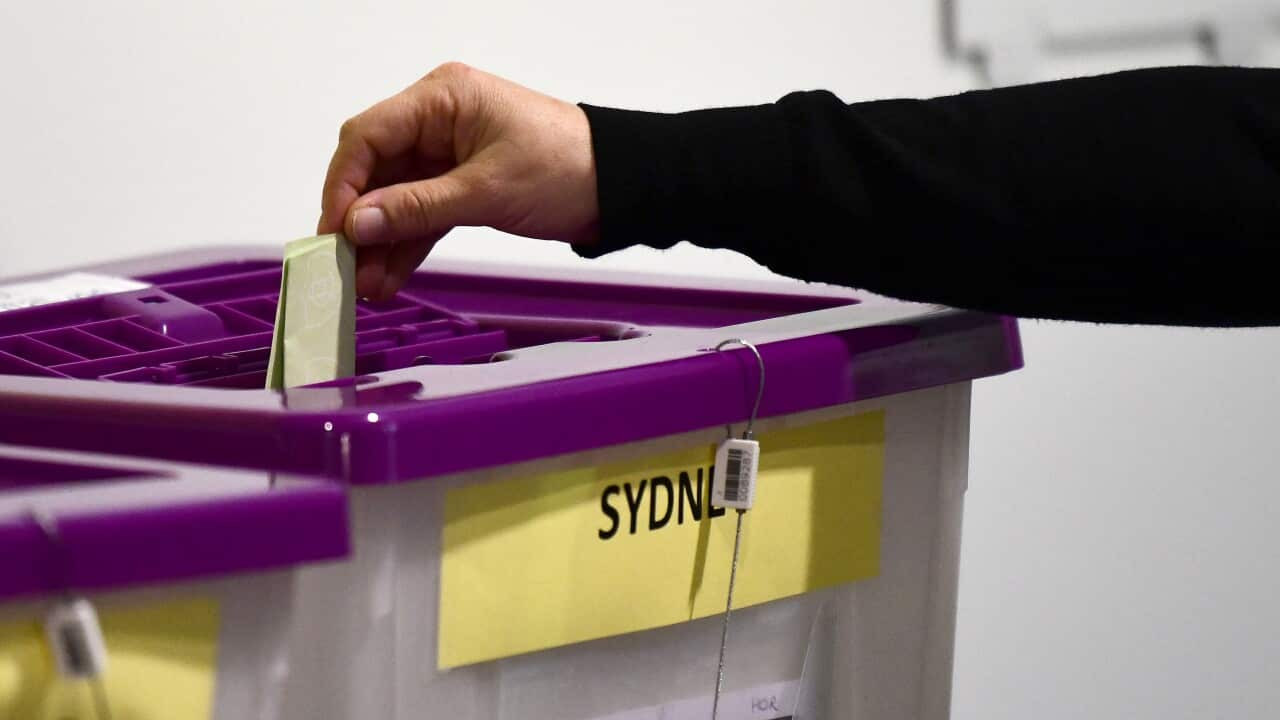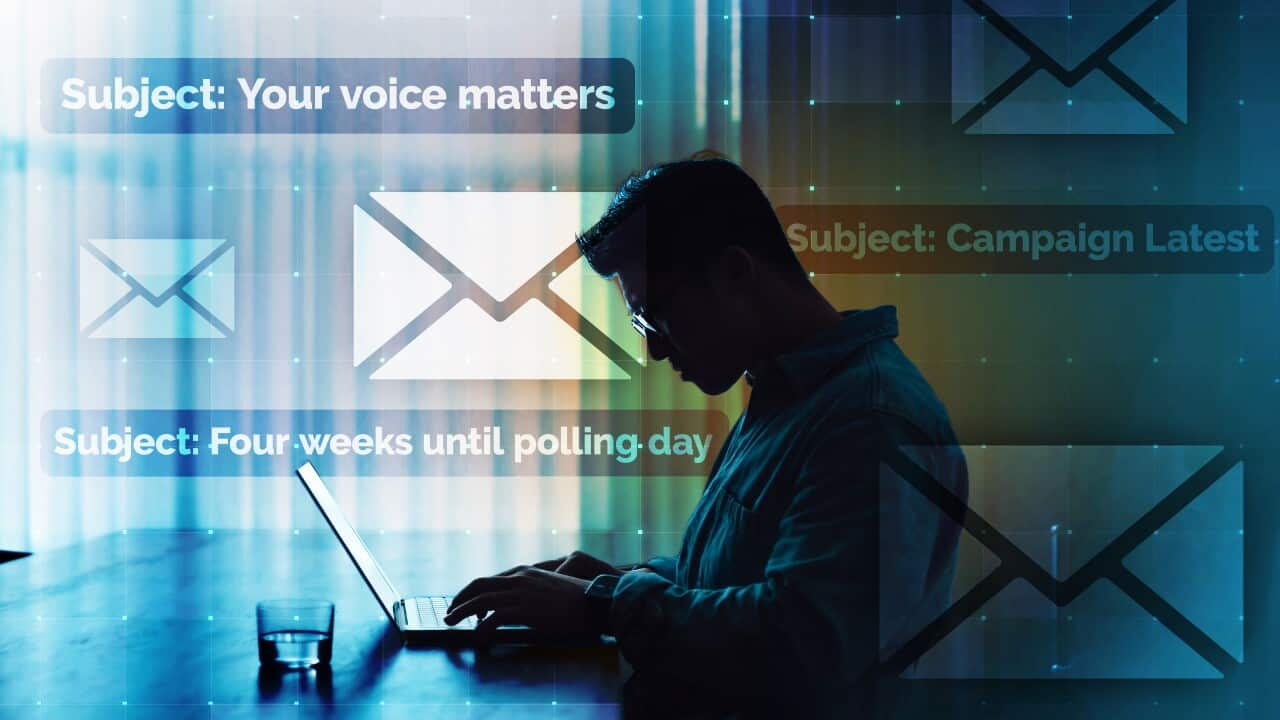For many Australians, half the fun of is enjoying a democracy sausage at a school stall while navigating the volunteers handing out how to vote cards.
But voting in prison looks very different.
There are no fundraisers, coffees or the smell of grilled onions. Sometimes, there isn't even any information about who to vote for.
Former prisoners have described to SBS News the barriers to voting while in jail and say the system does not appear to encourage voting and they are given little information on which to base their decision.
NSW resident Damien Linnane, 39, says he tried to exercise his right to vote in 2016 but was unable to.
Linnane tells SBS that in the lead up to election day, he was told about the process to enrol during a daily headcount, and filled out a form in the guard's office.
Nothing happened on election day. I was not called up to vote, nor was anyone else [that I saw].
"I asked the guards again and they said they had no idea about anything to do with the election. It was as if there was no election," he says.
"It was only at the end of the afternoon when we got locked back in that I was sure I would not be voting."
When Linnane enquired about why he wasn't assisted to vote, the prison staff said there was "a logistical issue". He says he complained to the NSW Ombudsman when the agency was at the prison for a routine visit, but he never heard anything back.

Damien Linnane says he was not able to vote in 2016. Source: Supplied / Michelle Cox
A Corrective Services NSW spokesperson told SBS News correctional centres in the state .
Extremely low numbers of prisoners voted last election
The Australian Electoral Commission (AEC) told SBS News that just 274 eligible prisoners voted in the 2022 federal election.
A spokesperson for the AEC said the 2022 numbers were low due to COVID-19 restrictions, but it also doesn't have data for prior elections.
"The AEC was restricted in all mobile polling activities [in 2022], meaning we weren't delivering hospital voting and only doing minimal prison and aged care voting etc," they said in a statement.
No data on prior federal elections is available, they said, as the system didn’t allow for the tracking of numbers.
"However, systems have been upgraded to ensure this data will be available for all federal elections (and referendums) from 2022 onwards. The upgrades reflect our commitment to improving and providing accurate information."
There were 44,403 adults in prison on 30 June last year, although not all of these prisoners are eligible to vote, according to the Australian Bureau of Statistics figures.
The Commonwealth Electoral Act states that a person serving a sentence of three years or more is not entitled to vote, although there are calls for this to change.
States and territories also have separate rules for voting in state and local elections. The method by which prisoners vote can also vary between jurisdictions.
While NSW prisoners lodge postal votes, in Victoria, prisons are gazetted as early voting locations.
AEC staff visit the prisons to facilitate voting for people in custody and staff, a spokesperson for the Victorian Department of Justice and Community Safety said.
"This involves bringing in manual voting booths into the prison in the week leading up to election day, with all prisons in Victoria participating."
Push to change 'unjust' prisoner voting laws
This month in Tasmania, the state parliament tabled a recommendation to allow all people in prison to vote.
In line with the Commonwealth rules, the Tasmanian Electoral Act only allows persons serving sentences of less than three years to vote.
The Tasmanian Aboriginal Legal Service (TALS) has called for this recommendation to go further and start conversations about the federal limit as well.
Jake Smith, CEO of TALS, says: "With the federal election just weeks away, it is crucial that we consider who is being excluded from democratic participation."
"Decisions made at both state and federal levels — by political parties, ministers, and governments — deeply affect the lives of people in prison."
Everyone deserves the right to have a say on decisions that impact them.
Smith says the laws also disproportionately impact Aboriginal people, pointing out that they represent nearly 25 per cent of the prison population in Tasmania while making up just 5 per cent of the state's population.
"It's unjust, and it's time these acts were amended," he says.
LISTEN TO

Party Time: The Players
SBS News
29:05
In 2007, the Human Rights Law Centre assisted in successful legal action that allowed prisoners jailed for less than three years to vote in federal elections.
The centre supported Aunty Vickie Roach, an Aboriginal prisoner at the Dame Phyllis Frost Centre in Victoria, to successfully challenge government legislation that applied a blanket ban on sentenced prisoners being able to vote as unconstitutional.
David Mejia-Canales, a senior lawyer at the centre, said: "We thought that that was not only just manifestly unfair, that's not how democracy works."
People do not stop being citizens just because they are imprisoned.
But both Labor and the Coalition told SBS News they did not have plans to broaden eligibility to allow more prisoners to vote.
"The government is not considering any changes to voter eligibility," a Labor spokesperson said.
A Coalition campaign spokesperson said: "The Coalition has no plans to change laws in relation to prisoner voting."
'Without information, you're very hesitant to vote'
Prisoners who have managed to vote while in jail also face other barriers to making an informed choice.
Melbourne resident Kelly Flanagan, 38, a Wiradjuri woman who voted while incarcerated during the Victorian state election in 2022, remembers being handed a piece of paper and told: "Do something with it and if you don't, we'll fine you."
"That's literally my voting experience in prison," she says.
There is no internet in prison, and there are restrictions on which newspapers and television channels are allowed. Without access to much information, Flanagan was not confident about how to vote.

Kelly Flanagan says she was provided with very little information when she voted in the Victorian state election in 2022. Source: Supplied
Information about who to vote for is a gap the AEC can't fill, as polling booths cannot provide information about parties or policies.
Evan Ekin-Smyth, AEC national spokesperson, told SBS News: "It's ultimately up to candidates and political parties who they communicate with and when."
Lack of information is something that About Time, Australia's first national prison newspaper, has "heard quite a lot" about, according to senior reporter Denham Sadler.
Rosie Heselev, managing director of About Time agrees, saying: "[prisoners] don't necessarily have access to party [policies], they don't have access to the internet like we do, don't have access to community events to ask a politician all these things that are so vital to our democracy."
She says it is also difficult to confirm if resources such as newspapers are distributed properly because prisons can be "so shuttered".
"[It’s] so hard for our small team to have oversight. What we do have is connections with corrections departments at each facility," she says.
Barriers to voting can feel dehumanising
For incarcerated people, their voting experience can greatly impact their well-being.
"The experience of prisoners is our opinion doesn't matter. We're criminals, so we don't deserve information. We don't deserve to make an informed choice," Flanagan says.
I know when I speak to other First Nations women, they're like, what's the point? They don't care about us, why should we bother?
Linnane says he felt "stung" when he was released and received a fine for not voting in his mail.
"I actually tried and I was annoyed that I couldn't vote because I wanted to still feel connected to my community," he says.
Heselev and Sadler say it was important for the wider community to engage with the perspectives and stories of incarcerated people.
"When there's issues of crime and justice being pushed around any election cycle, it's really important for us as democratic citizens to know what our taxpayers' money is being spent on," Heselev says.
"I think a first step for that is humanising this population."
They say this is especially important for marginalised populations such as First Nations people.
SBS News asked authorities in NSW and Victoria about the arrangements in place to ensure prisoners can vote and what information is available to them.
A Corrective Services NSW spokesperson said: "Corrective Services NSW works with the NSW Electoral Commission and the Australian Electoral Commission to identify eligible inmates and facilitate enrolling to vote and postal voting in each correctional centre."
The Victorian Department of Justice and Community Safety had a similar response, saying: "Corrections Victoria works with the Australian Electoral Commission to help eligible people in custody participate in federal elections."
"This includes providing them with information on upcoming elections and helping them enrol or update their existing enrolment details."
Linnane and Flanagan still believe in voting
Linnane still wants to encourage eligible prisoners to cast their vote.
"It is easy to feel like society's forgotten us. And voting might not make a difference, but not voting at all guarantees nothing will change."
For Flanagan, this election is her first time voting since she was imprisoned for just under three years — something that makes her feel "excited" and "like a valid person".
"I feel more part of society", she says.
"I feel like my opinion now matters because I'm not a number."
Even though Flanagan is "a little bit overwhelmed with how much information there is available", she says she remains "very passionate about making change and pushing for that process".
"Now I have the opportunity to have my voice heard."
Visit the to access articles, podcasts and videos from SBS News, NITV and our teams covering more than 60 languages.







